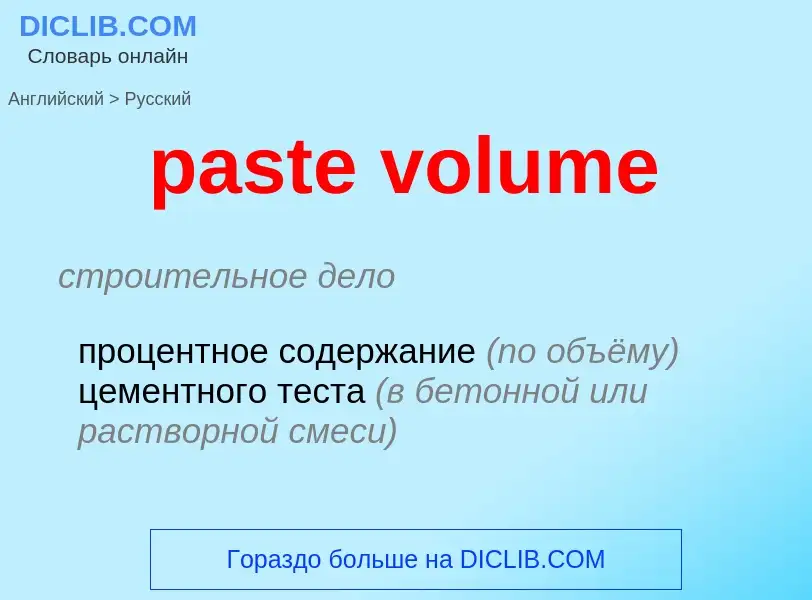Tradução e análise de palavras por inteligência artificial ChatGPT
Nesta página você pode obter uma análise detalhada de uma palavra ou frase, produzida usando a melhor tecnologia de inteligência artificial até o momento:
- como a palavra é usada
- frequência de uso
- é usado com mais frequência na fala oral ou escrita
- opções de tradução de palavras
- exemplos de uso (várias frases com tradução)
- etimologia
paste volume - tradução para russo
строительное дело
процентное содержание (по объёму) цементного теста (в бетонной или растворной смеси)
Wikipédia

Hard-paste porcelain, sometimes "true porcelain", is a ceramic material that was originally made from a compound of the feldspathic rock petuntse and kaolin fired at very high temperature, usually around 1400 °C. It was first made in China around the 7th or 8th century, and has remained the most common type of Chinese porcelain.
From the Middle Ages onwards it was very widely exported and admired by other cultures, and fetched huge prices on foreign markets. Eventually Korean porcelain developed in the 14th century and Japanese porcelain in the 17th, but other cultures were unable to learn or reproduce the secret of its formula in terms of materials and firing temperature until it was worked out in Europe in the early 18th century, and suitable mineral deposits of kaolin, feldspar and quartz discovered. This soon led to a large production in factories across Europe by the end of the 18th century.
Despite the huge influence of Chinese porcelain decoration on Islamic pottery, historic production in the Islamic world was all in earthenware or fritware, the latter having some of the properties of hard-paste porcelain. Europeans also developed soft-paste porcelain, fired at lower temperatures (around 1200 °C), while trying to copy the Chinese, and later bone china which in modern times has somewhat replaced hard-paste around the world, even in China.


![Section of the letter of [[François Xavier d'Entrecolles]] about Chinese porcelain manufacturing techniques, 1712, published by [[Jean-Baptiste du Halde]] in 1735. Section of the letter of [[François Xavier d'Entrecolles]] about Chinese porcelain manufacturing techniques, 1712, published by [[Jean-Baptiste du Halde]] in 1735.](https://commons.wikimedia.org/wiki/Special:FilePath/Lettre du pere Entrecolles 1712 du Halde 1735.jpg?width=200)

![Cut, Copy, and Paste icons in [[ERP5]] Cut, Copy, and Paste icons in [[ERP5]]](https://commons.wikimedia.org/wiki/Special:FilePath/A cutcopy.png?width=200)
